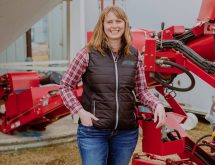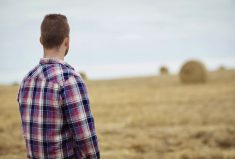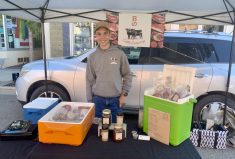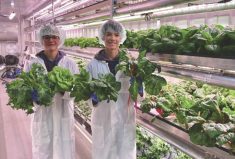
Jason Stuka didn’t grow up with a dream of farming.
Unlike his parents, he wasn’t raised on a farm nor was he immersed in the culture of farming. When he got a bachelor of arts degree, a job in ag wasn’t even on his radar.
But that all changed in his late 20s. He delved into the local food movement and then went back to school to study soil health in the Netherlands. As part of his schooling, he spent nine months working on an organic farm in Germany — and that was it for him.
The man who never dreamed of farming wanted to become a farmer.
“When I came back to Alberta, I knew I wanted to be involved with agriculture,” said Stuka. “I was in my early 30s then, and I had big ambitions to learn as much as I could as fast as I could to build the competencies to be able to farm.
Read Also
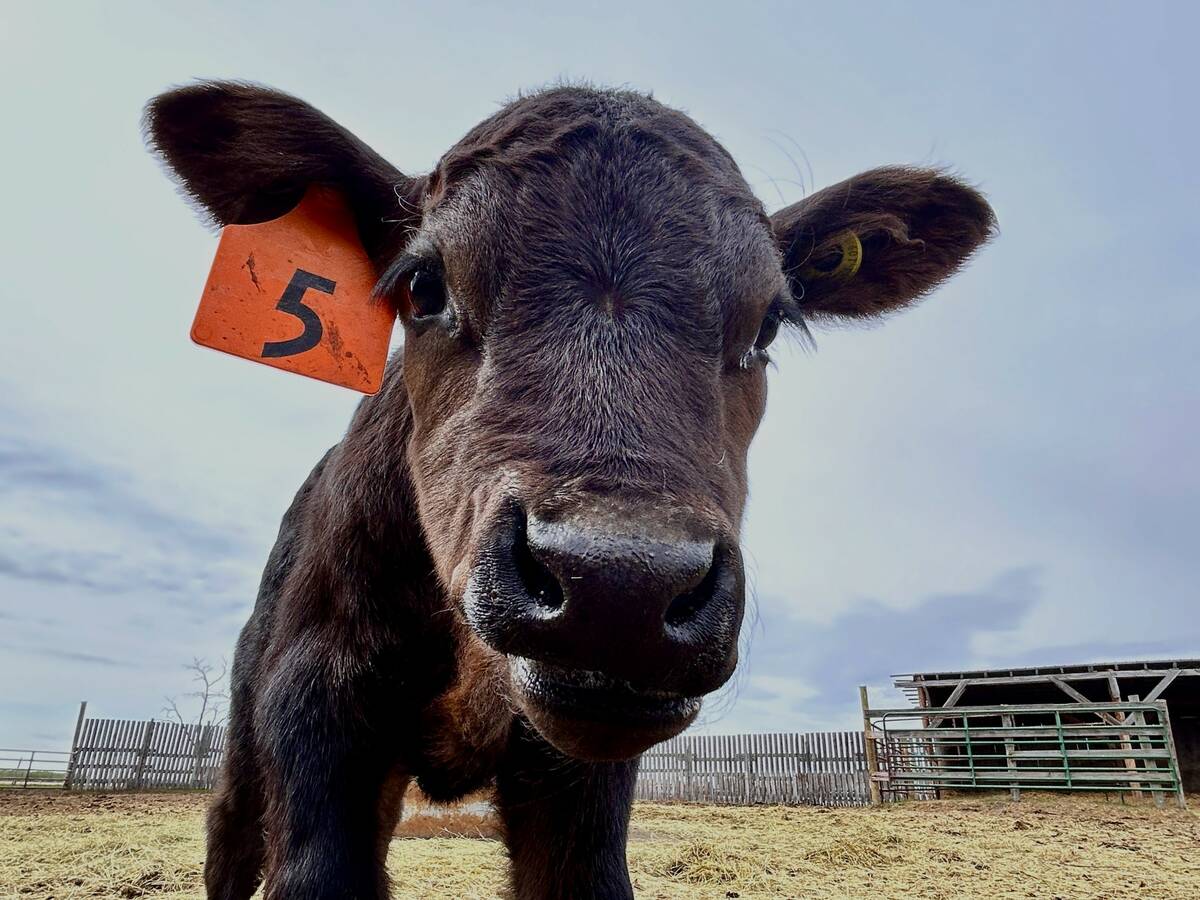
Calf vaccination timing: why one size doesn’t fit all
Experts say for calf vaccinations to be most effective, it requires using a tailored approach for each herd.
“I needed to get experience and be humbled — get on a farm and do the grunt work for a while. I needed to learn.”
But he wanted to get that experience on an organic grain farm and searching for an opportunity to do that seemed like looking for “a needle in a haystack.” Then his uncle, a farmer, shared an article (from the Alberta Farmer) about the Young Agrarians apprenticeship program. And one of the participating farms was an organic grain operation near Lethbridge.
And with that, the number of farmers in Alberta went up by one.
No shortage of would-be farmers
It’s impossible to know how many more Jason Stukas might be out there.
But the Young Agrarians, a decade-old organization created to “grow the next generation of farmers” — doesn’t have any shortage of applicants for its apprenticeship program. And the number is growing, said its apprenticeship co-ordinator for Alberta.

“In 2017, we had 27 people apply to be apprentices,” said Kolby Peterson. “In 2021, we had 134. In 2017, we had six host farms, and this coming season, we have 38 host farms.”
Young Agrarians is focused on “ecological, organic and regenerative” agriculture. Given the huge cost of starting a conventional operation, the economic barrier to that sort of farming is lower. But the learning curve is no less steep.
“The Young Agrarians apprenticeship program is just one of our programs that is trying to deliver farmer-to-farmer learning and networking throughout the Prairies,” said Peterson. “We’re trying to offer some solutions for the barriers that new farmers face.”
It starts with getting their hands dirty.
“They spend a whole growing season on their mentor’s farm, so they’re in it day in, day out,” she said. “They get a hands-on, very tactile experience of what farming is like.”
Equally critical is connecting aspiring farmers to a wider network.
“They need access to knowledge and agricultural community,” said Peterson.
Apprentices get to see different types (and sizes) of farms through tours, potlucks, and other events within their province.
“It does offer a pretty realistic glimpse into the sheer amount of effort and energy it takes to be a farmer,” said Peterson. “It’s definitely not the easiest career to get into, but having a community of people who support you and can offer their hands or their knowledge is a pretty irreplaceable thing.”
Moving forward
One of the first things that hit Stuka was the realization of how much he had to learn.
“When you come from a non-farming background and you’re not a farm kid, you definitely feel like a lot of the things you don’t know you should know,” said Stuka. “It was definitely a practice in patience. It takes time to learn.”
By the end of his second year, though, he started to realize he didn’t have to know everything in order to farm.
“When you look at it from outside farming, it seems like there’s an engineer behind everything on the farm who always knows what they’re doing,” Stuka said. “But it’s a process for everyone, and you can go forward without knowing everything. Farmers always have to build on what they know.”
Having a supportive network became even more important as Stuka began to think about how he could make the leap to being a farmer. And given the cost of land, most wondered why someone with no hope of inheriting a farm was even thinking of becoming one.
“Most people that I talked to in the farming industry see that typical model and said, ‘Well how are you going to do it? It’s impossible,’” he said.
“It’s been a challenge with my fellow farmers and neighbours not understanding how this is possible, but when people asked me how I would do it, I always thought I wouldn’t do it alone.”
That’s how the German farm he worked on was set up — multiple people lived and worked on the operation, renting homes on the land and running different enterprises.
“That gave me hope that I could find the right people here who want something like that. For me, the community and the connection is really important,” said Stuka.
“There’s a huge communal aspect in running a successful farm. You have to rely on other people.”
Keen to help
The first of those other people are mentors, and the Young Agrarians has developed a strong Prairie-wide network of people who have been farming for five or more years.
“They are really the heart of the program,” said Peterson. “They really want to teach this new generation of farmers.”
That’s why Laurie and Chad Trigg recently signed on as mentors.
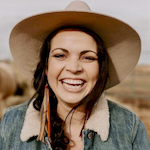
“Education is something that needs to be shared and passed down,” said Laurie Trigg, who bought Backwoods Buffalo Ranch near Mayerthorpe with her husband in 2013. “Together, many small farms can feed the world and do something in agriculture that looks a little different.
“We don’t mind sharing our knowledge at all if it means there are more people helping us feed our communities.”
Mentors were a huge help to the Triggs. Although both grew up on beef operations, neither had any experience with bison before they bought a property outfitted for a bison herd. The Triggs got their original herd from a family friend and received some hands-on experience learning about the bison business from him.
“I worked for him for a year doing his farmers’ markets and really learning the ins and outs of the meat business,” said Trigg.
The Triggs have since hosted more than 40 people from around the world through the Worldwide Opportunities on Organic Farms (WWOOF) program.
“We get so much positive feedback. We’re a very diversified farm, so there’s a lot to be learned here,” said Trigg, who also raises pastured pork, pastured chickens, and free-range eggs.
But WWOOFers also bring a new perspective to their ranch.
“They come up with fantastic ideas that you wouldn’t have ever thought to implement,” she said. “They just really bring something different to the table.”
Mentoring a green apprentice “sometimes takes more time and patience than they had imagined,” but mentors all say the experience is enriching, said Peterson.
“Watching a young person grow their skills and passion for farming is something they all find very rewarding.”
A fresh perspective
For Jenna and Brett Hauck, who are the fifth generation to farm at Lazy T Farm near Halkirk, mentoring aspiring farmers has revived their own love of farming.
“It just gives you a different perspective,” said Jenna, who produces grass-fed beef and pastured poultry. “When you go check the cows, you’re excited about what you’re doing rather than viewing it as a chore.
“It’s really rewarding having that young energy around and knowing you’re setting this younger generation up to become farmers.”

The Haucks returned to the farm where Jenna grew up about six years ago, and found the Young Agrarians to be “a huge help.”
“We would go to all their meet-ups and events, and always left feeling so inspired and connected to all the other young farmers in the community,” she said. “That’s something I felt growing up was just not an option for me — connecting with other young farmers.”
After getting some years and experience under their belt, the couple decided it was time to give back.
“We’ve only done it for two years now, but we’ve really lucked out,” said Hauck. “We’ve had two awesome young women come, and they both went away at the end of the season just loving it. It’s been a positive experience all around for everyone.”
That includes getting to see their own operation with a fresh set of eyes.
“It’s such good practice having to look at farming from a beginner’s perspective again,” she said. “It just makes you question everything and really step back to ask, Why am I doing it this way?”
The Haucks share an apprentice with Lady’s Hat Farm, owned and operated by Nikki Wiart, who produces flowers, honey, eggs, and grass-fed lamb.
“That gives the apprentice a well-rounded perspective of what farming can look like,” said Hauck.
“Growing up on the farm was a huge benefit for me, but if you don’t have that, it’s so hard to get your feet wet. Usually with these apprentices stepping in, they just want to get their feet wet in all different things.”
Growing the next generation
It is, of course, a whole lot of work but “most are not daunted by it,” said Peterson.
“They came into the program because they had this passion for farming, and rather than being dissuaded by the work it takes, most are up for it,” she said.
Some apprentices still work on their mentor farms as employees, while others have even started their own farms or farming enterprises on someone else’s farm.
“It’s really exciting to see that there is retention within the sector for these people and that the program gives them the legs to keep going,” said Peterson.
Stuka is now an assistant manager on another grain farm, where he’s been given more responsibility and opportunities for growth.
“They support my goals and ambitions, and the skills and knowledge I bring are greatly valued on this farm,” he said. “It might be a little non-traditional, but because I work with a team, we each bring different strengths.”
Tapping into those different strengths on the farm will become even more important as the aging farming population begins to retire over the next decade.
“It’s an international issue, but we’re definitely losing farmers, and there aren’t enough new farmers entering the scene to replace them,” said Peterson. “We absolutely need more farmers to become mentors and revive this rural landscape.
“So if somebody is thinking they might have skills and knowledge to pass on to the new generation of farmers, that’s the No. 1 reason to consider becoming a mentor.”
The Young Agrarians apprenticeship program is currently taking applications (until Jan. 31 at www.youngagrarians.org) and successful candidates will be placed on one of the 38 mentor farms across the Prairies. The program is open to young — “or young-at-heart” — people who are passionate about sustainable agriculture, regardless of their farming background.
“It definitely shows people that you don’t have to come from an agricultural background to get into farming,” said Laurie Trigg. “It’s never too late in life to follow that dream of producing your own food and being connected to the land.”
Stuka agrees.
“Agriculture is a really challenging industry to break into, but it’s not impossible,” he said. “It can seem daunting when you don’t grow up in the industry or the culture. But just because you didn’t grow up on a farm doesn’t mean you don’t have the capability to be able to farm someday.”



